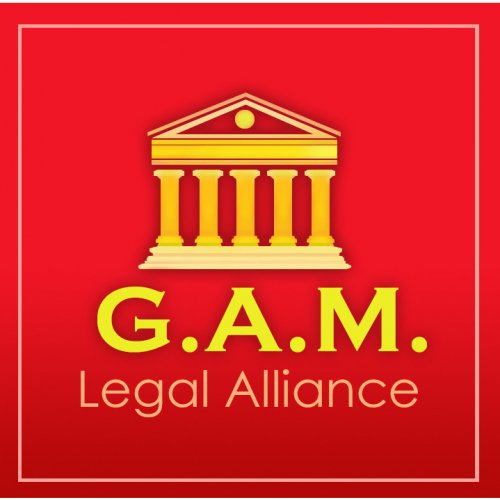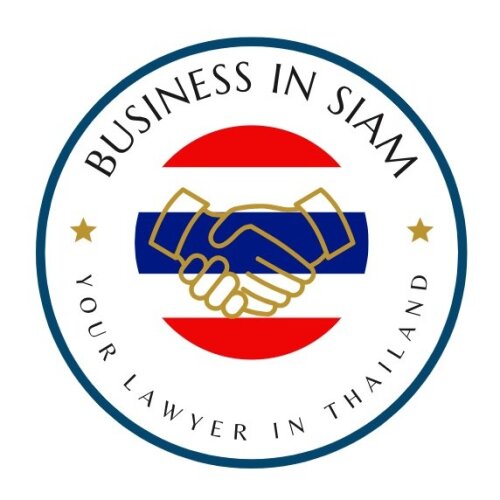Best International Trade Law Lawyers in Bangkok
Share your needs with us, get contacted by law firms.
Free. Takes 2 min.
List of the best lawyers in Bangkok, Thailand
Legal guides written by SIAM LEGAL INTERNATIONAL:
- Defamation Laws in Thailand: Criminal Charges and Civil Suits
- The State of Thailand’s Long-Term Resident (LTR) Visa Program in 2025
- The Penalties Of Not Filing Your Income Tax Return As A Foreigner In Thailand
Legal guides written by Smart Legal Solutions:
- Main Legal Measures to Protect Foreign Investment in Thailand
- The importance of the geographical indications for the Thai economy
About International Trade Law in Bangkok, Thailand
International Trade Law in Bangkok, Thailand, governs the exchange of goods, services, and capital across borders. This field of law is critical for businesses engaging in international commerce, as it encompasses various legal disciplines, including contract law, tax law, and intellectual property law. Trade agreements, import/export regulations, and compliance with multinational standards are key components of International Trade Law in Thailand. As a global hub, Bangkok plays a vital role in Southeast Asia for trade, serving as a strategic location for businesses due to its connectivity and vibrant economy.
Why You May Need a Lawyer
There are numerous situations where you may require legal assistance in International Trade Law. Common scenarios include drafting and reviewing international contracts, navigating customs regulations, handling cross-border disputes, protecting intellectual property rights internationally, and ensuring compliance with trade agreements and local laws. Additionally, legal help might be needed when setting up a business to trade internationally or when addressing trade tariffs and barriers. Thai law also mandates adherence to specific import and export controls, which a lawyer can help navigate.
Local Laws Overview
In Bangkok, Thailand, several local laws are pertinent to International Trade Law. The Customs Act regulates the import and export of goods, imposing duties and taxes while outlining penalties for non-compliance. The Foreign Business Act governs foreign business operations, stipulating certain restrictions and requirements. Intellectual property is protected under the Thai Trademark Act, Patent Act, and the Copyright Act. Additionally, Thailand is a member of global trade organizations like the World Trade Organization (WTO), which influences its trade laws and dispute resolution mechanisms. Understanding these laws and how they interact with international standards is crucial for businesses operating in the region.
Frequently Asked Questions
What is the role of International Trade Law?
International Trade Law governs and facilitates the legal frameworks for trade between countries by setting rules and standards for fair and efficient global commerce.
What is the purpose of an international trade lawyer?
An international trade lawyer assists clients in navigating complex international trade laws, ensures regulatory compliance, and represents clients in disputes or negotiations related to global trade.
What are Incoterms and why are they important?
Incoterms are international commercial terms that define the responsibilities of buyers and sellers in trade, such as delivery, risks, and costs. They are important for reducing legal uncertainties in international sales.
What should I know about export controls in Thailand?
Thailand imposes regulations on exporting certain goods, including strategic, dual-use items. Understanding these controls helps ensure compliance with Thai law and avoids penalties.
How are trade disputes resolved in Thailand?
Trade disputes in Thailand can be resolved through negotiation, arbitration, or litigation. The Arbitration Institute in Bangkok is commonly used for international trade disputes.
Can I import any goods into Thailand?
No, certain goods are either restricted or forbidden for import into Thailand due to health, safety, and moral standards. Importers must verify regulations for specific product categories.
What documents are essential for exporting from Thailand?
Key documents include the bill of lading, commercial invoice, packing list, export license (if applicable), and certificates of origin. These facilitate customs clearance and international trade processes.
How does Thailand's participation in ASEAN affect trade?
As part of the Association of Southeast Asian Nations (ASEAN), Thailand benefits from regional trade agreements, tariff reductions, and increased market access with other member countries.
Is Thailand involved in free trade agreements (FTAs)?
Yes, Thailand is a signatory to several FTAs, both regionally and globally, facilitating easier access to foreign markets and encouraging foreign investment.
Do tariffs affect all imported goods in Thailand?
While many goods are subject to tariffs, some categories may benefit from reduced or zero tariffs under trade agreements, which exporters and importers should be aware of to optimize costs.
Additional Resources
Several resources are available for those seeking more information on International Trade Law in Thailand. The Department of International Trade Promotion (DITP) under the Ministry of Commerce provides insights and regulations. The Board of Investment (BOI) offers guidance on investment laws and incentives related to international trade. Additionally, organizations like the Thai Chamber of Commerce and the Federation of Thai Industries can provide valuable networking opportunities and resources for exporters and importers.
Next Steps
If you require legal assistance with International Trade Law in Bangkok, Thailand, consider the following steps. First, clearly identify your legal needs or issues. Second, search for reputable law firms or legal professionals specializing in international trade. Look for lawyers with experience in handling cases similar to yours. Schedule consultations to discuss your case and understand their approach before making a commitment. Additionally, consider engaging with legal professionals who understand both local and international trade environments to ensure comprehensive legal support.
Lawzana helps you find the best lawyers and law firms in Bangkok through a curated and pre-screened list of qualified legal professionals. Our platform offers rankings and detailed profiles of attorneys and law firms, allowing you to compare based on practice areas, including International Trade Law, experience, and client feedback.
Each profile includes a description of the firm's areas of practice, client reviews, team members and partners, year of establishment, spoken languages, office locations, contact information, social media presence, and any published articles or resources. Most firms on our platform speak English and are experienced in both local and international legal matters.
Get a quote from top-rated law firms in Bangkok, Thailand — quickly, securely, and without unnecessary hassle.
Disclaimer:
The information provided on this page is for general informational purposes only and does not constitute legal advice. While we strive to ensure the accuracy and relevance of the content, legal information may change over time, and interpretations of the law can vary. You should always consult with a qualified legal professional for advice specific to your situation.
We disclaim all liability for actions taken or not taken based on the content of this page. If you believe any information is incorrect or outdated, please contact us, and we will review and update it where appropriate.

















